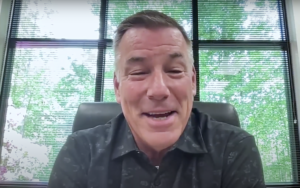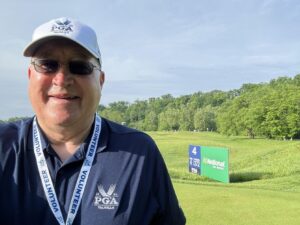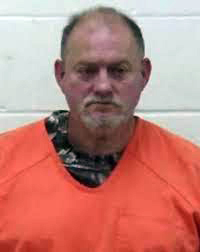
WINDSOR, Australia (BP)–Kangaroos and koalas, “g’day” and “no worries.”
Ask folks where they’d most like to travel, and chances are good they’ll include a mention of Australia.
With its rugged landscape and rugged people, red rock outback and Ocker pride, Australia is the dream adventure for millions of city-bound around the world.
And Bill Whelan, Aussie to the core, is one of his country’s biggest fans. But the spiritual state of Australia, particularly his own Hawkesbury Valley, brings a particular pain to his heart.
Whelan, deacon at Windsor District Baptist Church and backbone of the church’s sprawling “Tent City” housing Christian volunteers during the Olympics, desires one thing for Australia: revival.
Whelan can give his own testimony to the life-saving power of Jesus Christ.
“I was a 19-year-old submariner serving in the Royal Australian Navy. Mine was a non-Christian background, like most Australians. Like most extroverted young men, I was desperately lonely,” he recalls. “I understood that my relationship with God was totally inadequate.”
When the Christian faith was first explained to him, Whelan said he had the “comprehension of a teenage boy” — but was willing to listen.
“I decided that if Jesus Christ was fair dinkum [Aussie for trustworthy and genuine], then I would commit my life to him,” Whelan says. “And from that small, small seed of faith, I took the first step in becoming a child of God. The miracle was that I grew. [Jesus] changed my life by taking away the deep loneliness. It gave me a different reason for living and a fullness of life that is almost beyond comprehension. My best mate is Jesus.”
Whelan is not alone.
Federal House of Representatives member Kerry Bartlett, who represents the 745,000 people of Macquarie, became a Christian when he was 12 years old.
“Like everyone who loves God, I want to honor God in whatever I do — whether I’m a politician, butcher, baker or candlestick maker,” he says. “In my job, I represent the people as best as I can and uphold the issues and principles that are consistent with Christian teaching — especially those that support and strengthen the family.
“I believe Australia’s greatest spiritual need is to realize that we’re not here by accident. Every man, woman and child is answerable to our Creator. I pray that there will be a revival in Australia and that people will turn to the Lord.”
The majority of Aussies, however, cannot understand Whelan or Bartlett, shrugging off their perspective as “religious stuff.” Some have never even had the gospel explained to them in basic terms. With barely 3 percent of Australia’s 18.3 million people identified as evangelical Christians and no major revival in its history, the question is: Why are Australians so slow in responding to Christ?
“The reason stems from our historical background,” Whelan explains. “We’re convicts. My own personal heritage goes back to relatives seven generations ago who came out with the first convict ship fleet [from England] to settle Australia. Because of that, we have never had that depth of spiritual enlightenment. It was actually an afterthought for the British to send a minister of religion after that first convict fleet. Consequently, our society has grown as a secular society.”
Whelan would like to change that.
That’s why Windsor District Baptist Church opened its grounds to more than 600 Christian volunteers from 13 countries and all across Australia. The “Tent City” at Windsor provides a base as they minister in the packed streets of Sydney during the Olympics. And they came: musicians, children’s workers, street witnesses, evangelists — all longing to see the world, especially Australians, come to Christ.
“These Christians are one in the Lord and one in the desire to touch Australians,” Whelan says. “We are seeing Australians with no reservations committing their lives to Jesus Christ, and that has had a profound effect on everyone.”
Action International 2000 Australia, an interdenominational evangelism group from the United States, has spent the last week and a half sharing the gospel in Darling Harbour, Sydney sidewalks and pin-trading stands, on the train — anywhere people will listen.
“Out of everyone we’ve shared the gospel with, 90 percent of those responding have been Australians,” says Action communication specialist Danea Hall. “They’re very open. And we’re serious about follow-up with those who have made commitments.”
Because of the volunteers’ work, Windsor pastor Noel Edwardes says he has a stack of follow-up cards waiting for him. The church’s weekly activities have been well attended by neighbors interested in seeing the Olympics on wide-screen TV — and whether or not these Baptists practice what they preach.
Whelan, who has been praying for this kind of breakthrough for years, is excited.
“When we see people whose lives have been changed, when see people who are being touched and who commit their lives to the Lord and when we know that the Lord is saying, ‘Well done, good and faithful servant,’ that is what we pray for,” he says.
“Australians put a lot of emphasis on mateship. To be a mate in Australian society is a very special term. Australians greet each other, ‘G’day, mate!’ But it’s not just a colloquial saying. It represents a deep fraternal relationship. And our challenge is to share with people within Australian society that the greatest mate of all is Jesus Christ, our Savior.”
This just might be the time for revival, Whelan continues.
“There is a dynamic within Australian society for a revival that hasn’t happened yet,” he says. “So we’re evangelizing flat out — like a lizard drinking water.”
–30–















